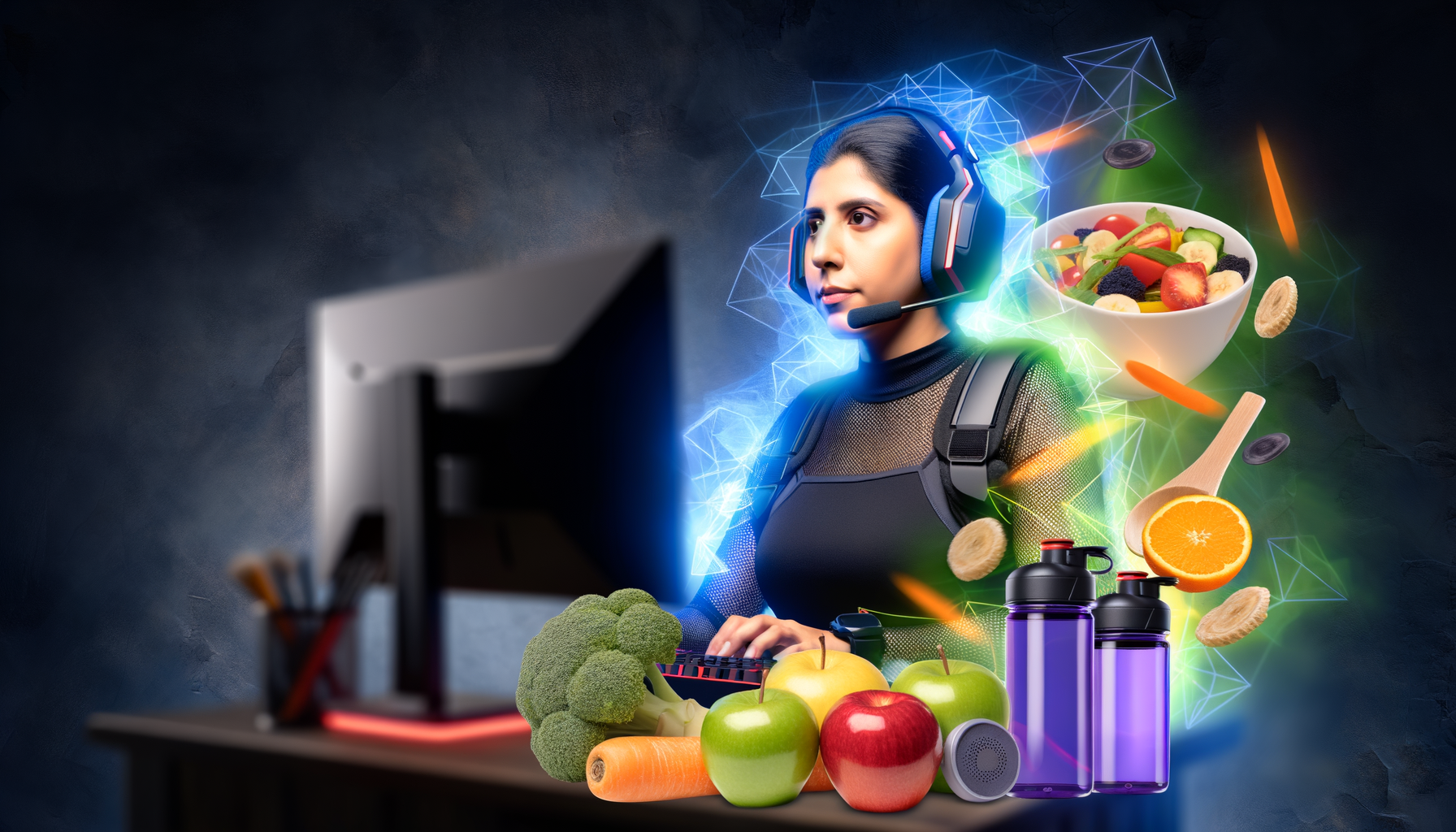Understanding the Calorie Needs of Esports Athletes
In the rapidly evolving world of esports, the nutritional needs of professional gamers are becoming increasingly important. Unlike traditional athletes, esports athletes face unique physical and cognitive demands that require a tailored approach to nutrition. Here, we will delve into the calorie needs, nutritional strategies, and health recommendations specifically designed for esports athletes.
The Energy Expenditure of Esports
Esports athletes, despite being engaged in what appears to be a sedentary activity, expend a significant amount of energy. Research indicates that competitive esports gameplay increases median energy expenditure compared to resting conditions. A study published in the journal of sports science found that esports athletes expend approximately 1.28 kcal·min−1 during gameplay, which is higher than their resting energy expenditure.
This increased energy expenditure is not just physical but also cognitive. Esports athletes engage in prolonged periods of intense mental focus, which requires a steady supply of energy to the brain. Carbohydrates, particularly complex carbohydrates, play a crucial role in providing this energy. The brain relies solely on glucose as an energy source, making a well-regulated carbohydrate intake essential for maintaining mental endurance during lengthy tournaments.
Macronutrient Balance for Esports Athletes
### Proteins
Proteins are vital for brain function and overall health. They are the building blocks of neurotransmitters such as serotonin and dopamine, which influence mood and cognitive performance. An optimized protein intake helps in efficient neural impulses and maintains a healthy mental state. Lean proteins like chicken, fish, and plant-based options are recommended.
### Fats
Fats, especially polyunsaturated and saturated fats, are important for brain function. They help regulate brain cells and are essential for cognitive health. However, fat intake should be monitored to avoid negative effects. Healthy fats found in nuts, seeds, and fatty fish are beneficial for brain health and overall well-being.
### Carbohydrates
Carbohydrates are the most critical macronutrient for esports athletes due to their role in providing energy to the brain. Complex carbohydrates such as whole grains, fruits, and vegetables are preferred over simple sugars. Simple sugars can cause energy crashes and mental fatigue, which are detrimental during competitive gaming.
### Sugars
Simple sugars should be avoided as much as possible, especially close to competition days. They cause rapid spikes and crashes in blood sugar levels, leading to mental fatigue and decreased performance. Instead, focus on complex carbohydrates that provide sustained energy levels.
Hydration and Electrolytes
Hydration is crucial for esports athletes. Adequate water intake helps maintain focus and cognitive function. Electrolyte-balanced fluids are also important to ensure proper muscle contractions and coordination. Potassium and magnesium, found in nuts, fruits, and vegetables, are key electrolytes that support reflexes and muscle function.
Supplements and Functional Foods
The gaming supplement market has seen significant growth, offering various products aimed at enhancing cognitive performance and overall health. Caffeine, often paired with ingredients like creatine or L-theanine, is commonly used to boost performance. However, it is important to consume caffeine in moderation to avoid overstimulation and decreased focus.
Other supplements like bioactive collagen peptides for joint health and carotenoid molecules for eye health are also gaining popularity. Brands such as EXCEL ESPORTS advocate for diets based on natural ingredients and functional foods combined with supplements to support the nutritional needs of esports athletes.
Physical Fitness and Cognitive Performance
While esports is primarily a mental activity, incorporating physical fitness into the routine is essential. Moderate intensity aerobic exercises and muscle strengthening activities help prevent chronic overuse injuries and improve overall health. Flexibility exercises, such as yoga, are also recommended to maintain both physical and mental well-being.
Technologies like VR, MR, and AR are making traditional sports like cycling and running accessible to esports athletes through platforms like ZWIFT. This integration of physical activity into the sedentary lifestyle of esports helps in maintaining a balanced health profile.
Real-World Examples and Case Studies
Professional esports teams are increasingly focusing on nutrition as a key component of their training. For instance, teams like Team Liquid and EXCEL ESPORTS have partnered with nutrition brands to provide their players with balanced meal replacements and supplements. These partnerships highlight the growing recognition of the importance of nutrition in esports performance.
In addition, individual players who prioritize nutrition often report improved focus, better drive, and enhanced overall performance. The shift away from the traditional “gaming junk food culture” towards healthier nutrition is a trend that is expected to continue as the esports industry matures.
Future Directions in Esports Nutrition
The future of esports nutrition is likely to involve more tailored and convenient nutritional solutions. With the rise of functional foods, nutraceuticals, and sport supplements, the industry is moving towards delivering products that meet the specific needs of esports athletes. Companies are experimenting with diverse formats such as capsules, shakes, premix powders, and gummies to make nutrition more accessible and convenient for gamers.
There is also a growing need for scientific studies focused specifically on the nutritional needs of esports athletes. Consolidating expert inputs from various sectors will help establish standard nutritional guidelines that can benefit the entire gaming community.
Conclusion and Next Steps
In conclusion, the calorie needs and nutritional strategies for esports athletes are distinct and critical for their performance. By focusing on a balanced diet rich in lean proteins, complex carbohydrates, and healthy fats, and by staying hydrated and incorporating physical fitness, esports athletes can optimize their performance.
For those looking to improve their gaming performance, using tools like the Calorie Calculator Cloud can help in determining the right calorie intake and macronutrient balance. Additionally, exploring the various Calorie Calculator Plans can provide personalized nutritional guidance.
As the esports industry continues to grow, the importance of nutrition will only become more pronounced. By adopting healthy nutritional habits and staying informed about the latest research and trends, esports athletes can gain a competitive edge and ensure a long and successful career in the gaming world.








